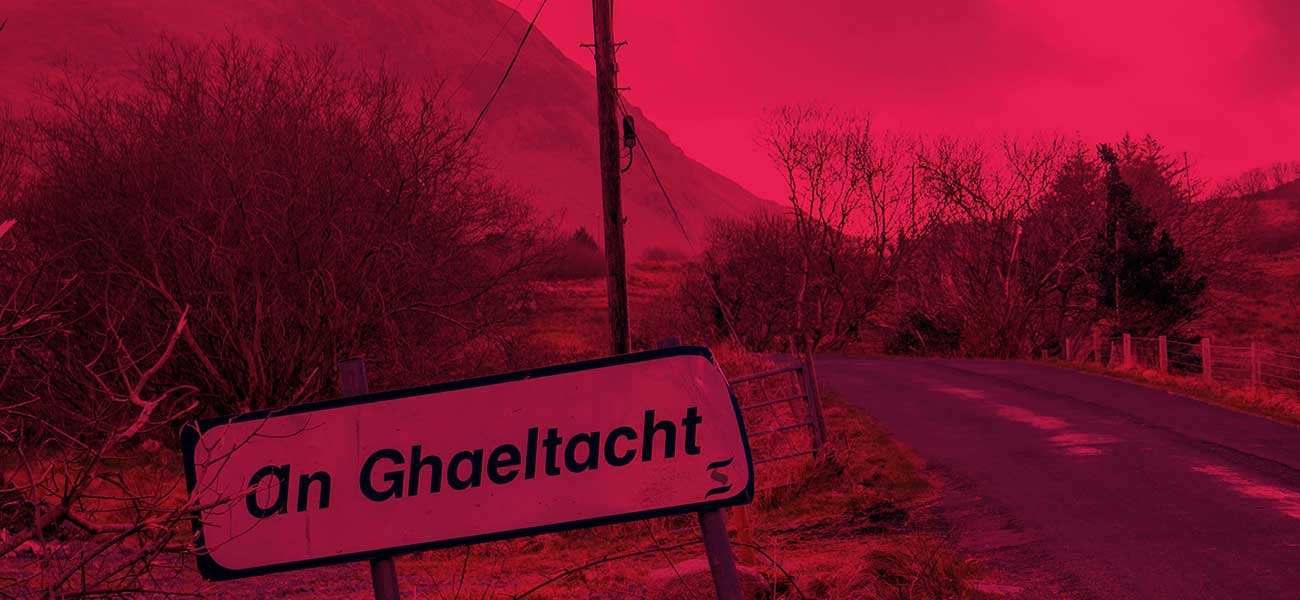Life Through Irish
People Before Profit believes that people have a fundamental right to live their lives through Irish. We see the lack of legal rights and the systemic lack of resources as the two primary obstacles to realising that fundamental right, obstacles that arise out of the colonial suppression of the language and our current capitalist system. Indeed, we’re certain that only a socialist system can provide adequate rights and resources for all.
Challenges
It is five years since An Lá Dearg, the high point of the Dream Dearg campaign for Irish language rights. Since then, there has been a lot of progress, but at the same time, certain things haven’t changed at all.
The DUP, in particular, have tried to oppose language legislation at every turn, despite the fact they signed up to it in January 2020. In the same mould as the DUP is the British Government, which reneged on its promise to put Irish language legislation through Westminster. The crowd in Downing Street are brazen rogues.
And despite considerable growth in interest and speakers, many challenges remain. The Irish Medium Education sector is under chronic pressure, constant barriers are erected to bilingual signage, sectarian attacks on the language are frequent, and vital Irish language youth services are under constant threat of funding cuts.
Movements On The Ground
Recent gains by the Irish language community have come through campaigns on the ground, feet on the street. When politicians got together behind closed doors, the language suffered.
In the most recent example, Sinn Féin’s decision to make a secret deal with the British government to pass language legislation through Westminster was disastrous. Stormont has the power to pass an Irish Language Act, and they have failed. The British Government won’t protect us from DUP stubbornness – that pact was the equivalent of jumping from the frying pan into the fire.
People Before Profit think the proposed Irish language legislation isn’t good enough. It fails at the first hurdle: it isn’t standalone legislation. The Irish language belongs to everybody, regardless of background, identity, or political persuasion, and it was a scandal to pair Irish provisions with those of Ulster Scots. Ulster Scots should undoubtedly be supported but on its own terms. As the Council of Europe has stated, twinning Irish and Ulster Scots legislation results in the sectarianisation of both. This fault, as well other weaknesses in the legislation, such as the lack of powers any language Commissioner would have, stemmed from negotiations that were cut off from the movement.
Therefore, People Before Profit are convinced that local and national movements from below are how we will ultimately win the change that is urgently necessary.
Why We Need More Elected Socialists
However, elected socialist representatives can play a vital role. They can provide a platform for campaigns, keep a lookout for any political games being played, and they can hold the feet of bigger parties to the fire.
That’s what our elected reps have done in the North over the past number of years. In 2017, People Before Profit were the only party to make an Irish Language Act a red-line issue before the election. And in Belfast City Council, our councillors played a decisive role in winning a more radical signage policy as they didn’t accept the questionable legal advice which was used to cow other parties.
Every elected PBP representative will stand with the Irish language community. We’ll stand up against not only the bigotry of the DUP but also the inaction of other parties which claim to support the language.
Policies
People Before Profit want to see, and our elected MLAs will fight for:
- A Standalone Irish Language Act:
- Which makes Irish an official language
- Which places legal duties on public bodies in regards to Irish, as is done in Wales
- The implementation of the Irish Language Strategy, properly resourced, as was promised many years ago.
- Increased funding and legal status for the Irish Medium Education sector, including:
- An Irish language education policy, which recognises that the sector is growing and that it has specific requirements as a sector given that Irish is a minority language
- Increased teacher numbers
- Investment in learning resources through Irish
- Support services for special educational needs for young people in Irish language environments, to ensure they receive the same service as is available through English
- Proper recognition for Irish language youth services, including steady, long-term funding which reflects the growth and particular requirements of the sector.
- We support the #GaelVóta demands, including the need for legislation for the Irish medium education sector and tackling the decline of Irish as a subject at GCSE level.


